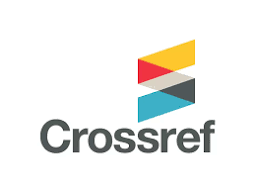Perceptions of Undergraduate Medical Students regarding Objective Structured Practical Examination and Objective Structured Clinical Examination as an Assessment Method
Keywords:
Students, Examinations, Medical Education, Objective Structured PracticalAbstract
Introduction: At present student’s assessment in MBBS course is mainly based on Traditional Practical Examination. The studies have shown that it can have certain disadvantages which can be overcome by adopting Objective Structured Practical Examination and Objective Structured Clinical Examination.
Objective: To evaluate the perception of MBBS students towards Objective Structured Practical Examination and Objective Structured Clinical Examinationas an assessment method.
Methods: A cross-sectional study was conducted amongst MBBS students from all academic years of Poonch Medical College, Rawalakot, Azad Kashmir, Pakistan from June to August 2018. A self-administered questionnaire containing 13 items was used for the data collection.
Results: 267 students from all academic years participated in this survey. Majority of the students believed that OSPE/OSCE can remove inter-examiner variations. Maximum students agreeing with the statement that “OSPE is better than conventional examination”, were from the third year (63.93%) followed by 4th year (60.0%). Highest number of students who agreed that “OSPE/OSCE should replace viva-voce”, was from 4th year. Overall, 73.12% MBBS students, inclusive of all academic years, agreed that the OSPE should be preferred method of assessment in every subject.
Conclusion: The present study has shown good acceptability of Objective Structured Practical Examination and Objective Structured Clinical Examinationby the students with majority of them considering it better than conventional method.
Downloads
Published
Issue
Section
License
Copyright (c) 2019 Abdus Salam Khan; Arslaan Javaeed, Rubab Ayesha Rasheed, Sanniya Khan Ghauri, Khawaja Junaid Mustafa

This work is licensed under a Creative Commons Attribution-NonCommercial 4.0 International License.
Readers may “Share-copy and redistribute the material in any medium or format” and “Adapt-remix, transform, and build upon the material”. The readers must give appropriate credit to the source of the material and indicate if changes were made to the material. Readers may not use the material for commercial purpose. The readers may not apply legal terms or technological measures that legally restrict others from doing anything the license permits.


